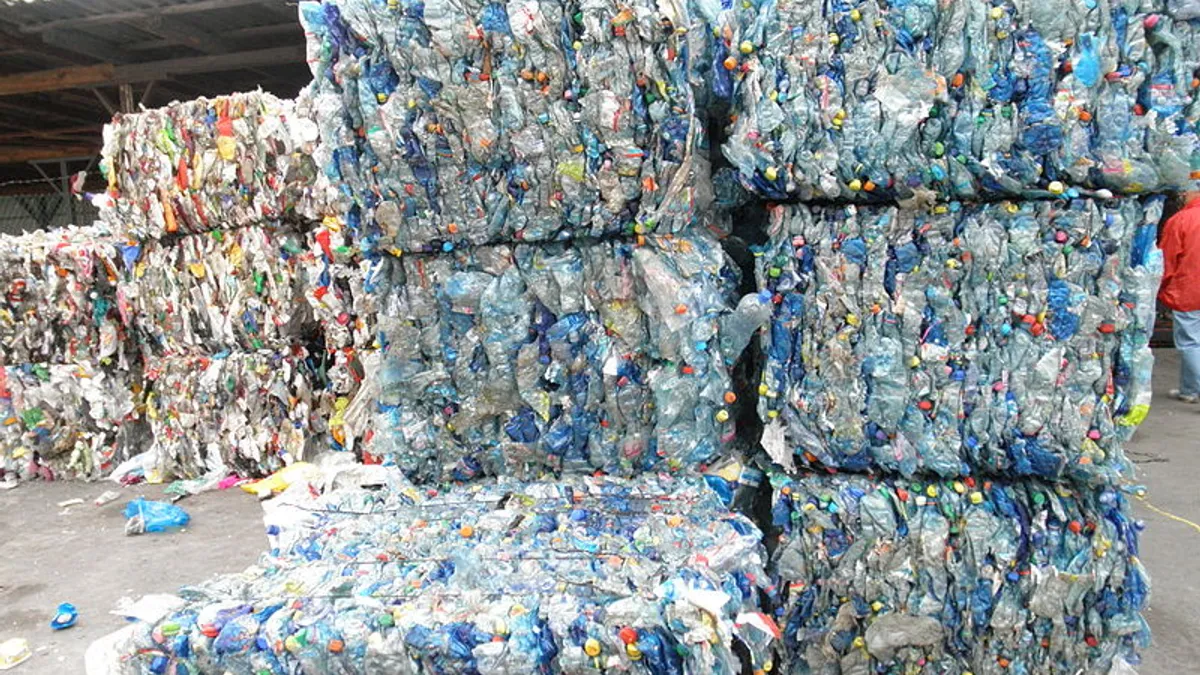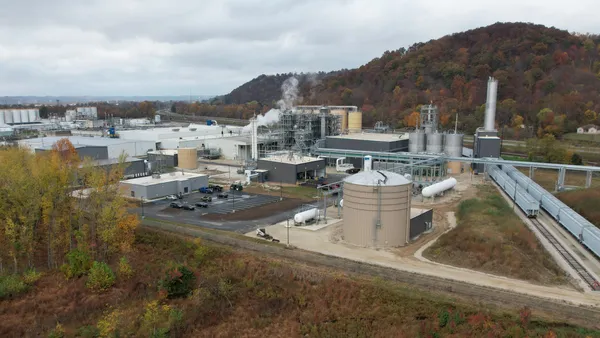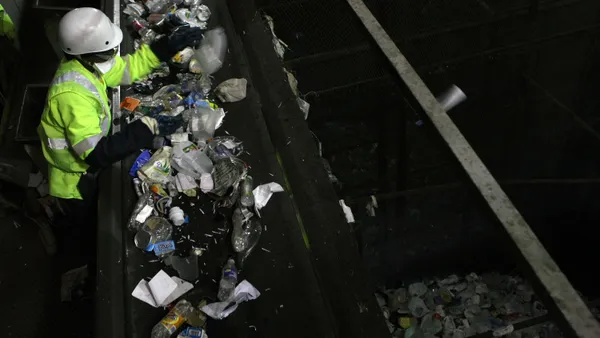Dive Brief:
- China's new scrap import policies have begun to take a toll on recycling in multiple Lane County, OR communities. Effective immediately, residents in the small city of Florence can no longer put any plastic items or cartons in their curbside bins. This was prompted by local service providers Central Coast Disposal and County Transfer — a Waste Connections subsidiary — deciding the contamination risk and low market value no longer made it viable, as reported by The Register-Guard.
- Some recyclers in nearby Jackson County have been running single-stream materials through sorting lines twice to reduce contamination, which has slowed efficiency, as reported by the Ashland Daily Tidings. Multiple service providers, including Rogue Disposal & Recycling, have said no viable markets are available for mixed paper and multiple types of plastic containers.
- Oregon does require recycling education and drop-off or curbside programs depending on the size of a county or municipality. Though, as reported by The Register-Guard, many aren't required to offer recycling services for specific materials based on a population formula. The Oregon Department of Environmental Quality (DEQ) has been offering guidance and working with stakeholders to help address the situation.
Dive Insight:
As the industry continues to sort through the implications of China's new scrap import policies, it appears that some of people's worst fears are beginning to play out. Early signs of this showed up last month in Oregon, when Portland's Far West Recycling stopped taking rigid plastics and a similar situation is also happening in Madison, WI. More conversations are also underway in additional Oregon municipalities with the potential for new material restrictions to be announced soon.
The effects in each area are expected to differ and in some cases residents can still drop material off at county or municipal transfer stations. The DEQ has posted guidance on its site, saying that the full effects of these changes are still unknown. "Given the major market disruption this is causing, DEQ and its partners are preparing for different possibilities and developing strategies to maintain recycling collection and processing where possible as we update those systems to recycle more effectively in the future...During this uncertainty, the state will experience short-term challenges, and DEQ will continue to encourage recycling as much as possible," reads a statement on its website.
Due to their proximity to Chinese markets, West Coast states are among the first to feel the effects with reports of baled material piling up in warehouses and at ports. Even cardboard, originally thought to be safe from the initial July announcement of a mixed paper and mixed plastic ban, has been affected. This is mainly attributed to a restriction in overall import licenses for Chinese buyers, as well as the tight 0.3% contamination specification. While Oregon has seen some of the most local coverage on the topic, service providers around the country are feeling the pinch and more news could be expected in the coming weeks. Depending on the state regulations and opinions of environmental agency staff, this could lead to additional disposal of previously recyclable material, as industry trade associations have been warning.
Those same associations are continuing to work on this issue, now with engagement from the federal government, but any hopes of weathering China's new policies without at least some short-term disruption have passed. Last week, all but one of the major publicly traded companies saw significant drops in their stock prices due in part to uncertain Chinese recycling markets. Amid this conversation, recyclers in Oregon and beyond have expressed hope that this could spur more focus on reducing contamination and expanding domestic processing capacity. Multiple industry professionals have echoed those sentiments, many in the name of achieving "zero waste" goals, but if Oregon's situation is any indication, then more turbulence can be expected in the meantime.












